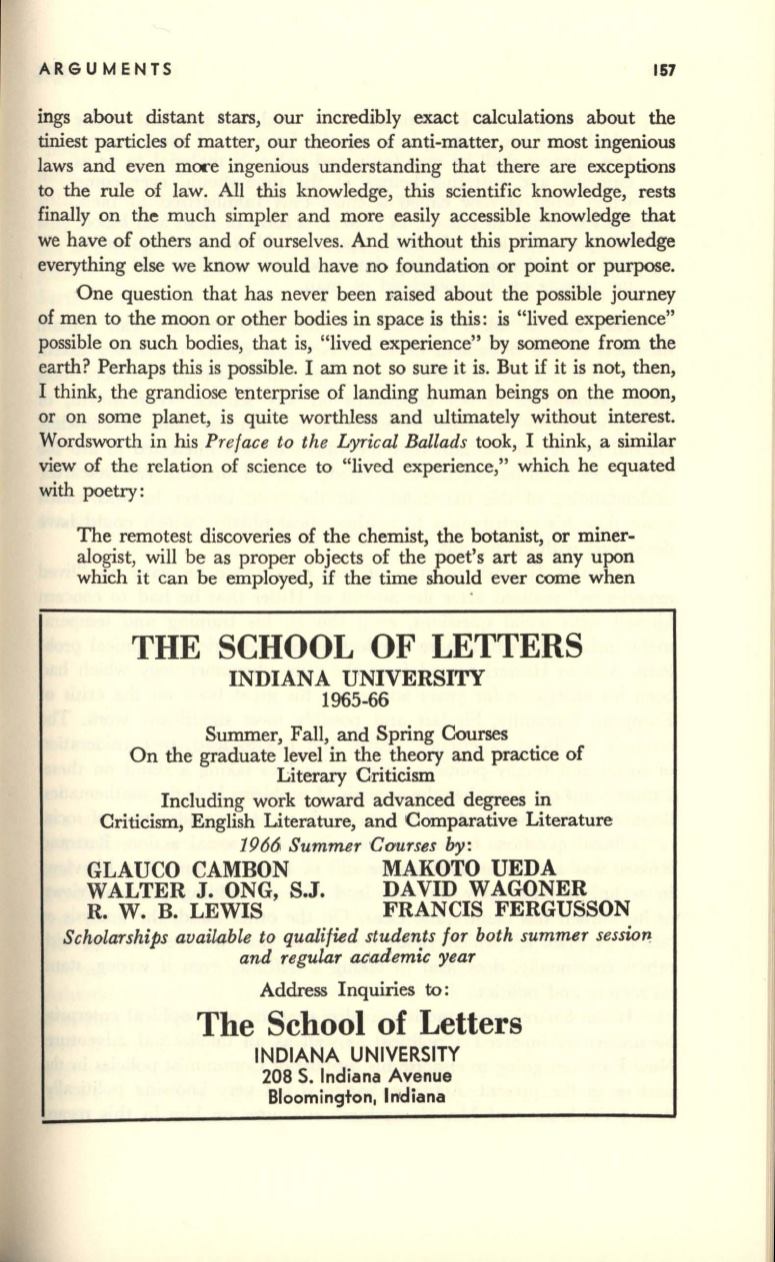
ARGUMENTS
157
ings about distant stars, our incredibly exact calculations about the
tiniest particles of matter, our theories of anti-matter, our most ingenious
laws and even more ingenious understanding that there are exceptions
to the rule of law. All this knowledge, this scientific knowledge, rests
finally on the much simpler and more easily accessible knowledge that
we have of others and of ourselves. And without this primary knowledge
everything else we know would have no foundation or point or purpose.
One question that has never been raised about the possible journey
of men to the moon or other bodies in space is this:
is
"lived experience"
possible on such bodies, that is, "lived experience" by someone from the
earth? Perhaps this is possible. I am not so sure it is. But if it is not, then,
I think, the grandiose 'enterprise of landing human beings on the moon,
or on some planet, is quite worthless and ultimately without interest.
Wordsworth in his
Preface to the Lyrical Ballads
took, I think, a similar
view of the relation of science to "lived experience," which he equated
with poetry:
The remotest discoveries of the chemist, the botanist, or miner–
alogist, will be as proper objects of the poet's art as any upon
which it can be employed, if the time should ever come when
THE SCHOOL OF LETTERS
INDIANA UNIVERSITY
1965-66
Summer, Fall, and Spring Courses
On the graduate level in the theory and practice of
Literary Criticism
Including work toward advanced degrees in
Criticism, English Literature, and Comparative Literature
1966 Summer Courses by:
GLAUCO CAMBON
MAKOTO UEDA
WALTER J. ONG, S.J.
DAVID WAGONER
R. W. B. LEWIS
FRANCIS FERGUSSON
Scholarships available to qualified students far both summer
sessio~
and regular academic year
Address Inquiries to:
The School of Letters
INDIANA UNIVERSITY
208 S. Indiana Avenue
Bloomington, Indiana


